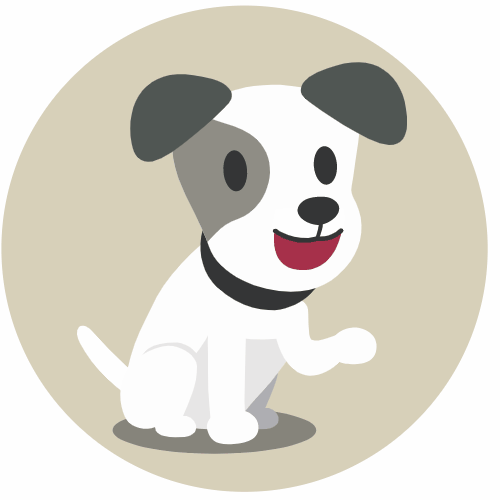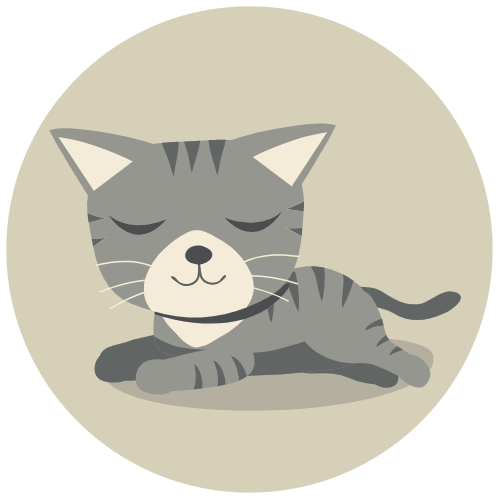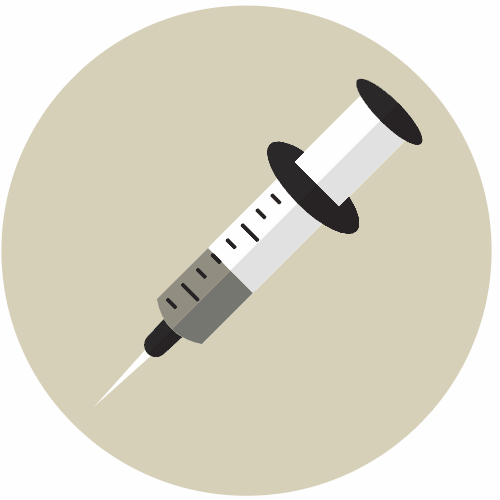Bringing a new puppy or kitten into your home can be so exciting! Puppy and kitten care encompasses a lot of
important aspects
of pet healthcare, but at South County Animal Hospital, we’ve divided up your puppy and kitten’s initial visits into a series of three exams to ensure your new pet receives the necessary care and vaccinations when it matters most.
Your Pet’s Initial Series of Exams
The team at South County Animal Hospital is here to help you manage your new furry friend’s care through a series of three primary exams 3-4 weeks apart. Establishing your pet’s healthcare is an important step in pet ownership so we can examine your companion and provide a clean bill of health.
First Exam
A pet’s first exam usually happens at 8 weeks old, but regardless of their age, a new pet’s exam normally consists of a physical examination performed by your veterinarian as well as a fecal analysis and their first round of vaccinations:
Kittens:
- HCP (Herpes Virus, Calici, Panleukopenia)
- Deworming
- FELV(Feline Leukemia Virus) and FIV test
Puppies:
- DAP (distemper, adenovirus, parvovirus)
- Deworming
Second Exam
We will schedule the second puppy and kitten exam 3-4 weeks after your pet’s first one. Your veterinarian will perform yet another physical exam to evaluate their growth and administer their second set of shots:
Kittens:
- HCP (Herpes Virus, Calici, Panleukopenia)
- FeLV (Feline Leukemia Virus)
- Deworming
Puppies:
- DAP (distemper, adenovirus, parvovirus)
- Bordetella
- CIV (flu)
- Deworming
Third Exam
Your puppy or kitten’s third exam will occur 3-4 weeks following the second exam. We will time discuss your pet’s adult dog and cat care, schedule their spay or neuter surgery, microchip your pet, and supply appropriate parasite prevention. Your veterinarian will once again assess your pet’s growth and development, perform a fecal analysis, and give the final puppy and kitten shots:
Kittens:
- HCP (Herpes Virus, Calici, Panleukopenia)
- FeLV (Feline Leukemia Virus)
- Rabies
Puppies:
- DAP (distemper, adenovirus, parvovirus)
- CIV (flu)
- Leptospirosis
Fourth Exam
The fourth kitten/puppy visit includes a full physical exam, a final round of boosters, and a recommendation for flea and heartworm medication to start at home.
Kittens:
- HCP (Herpes Virus, Calici, Panleukopenia)
- FeLV (Feline Leukemia Virus)
- Rabies
Puppies:
- DAP (distemper, adenovirus, parvovirus)
- Leptospirosis
- Rabies

Spaying or Neutering Your New Pet
At South County Animal Hospital, we recommend all pets be spayed or neutered. Your veterinarian can help determine the best time to schedule your pet’s surgery during their third puppy or kitten exam.
HOW DO I SET A POTTY TRAINING SCHEDULE?
- First thing in the morning
- Last thing at night
- After spending time in a crate
- Upon waking up from a nap
- After eating or drinking
- Time between potty breaks
should be no more than 2-4 hours
HOW DO I CRATE TRAIN MY PUPPY?
- The crate should be big enough for your puppy to stand up, turn around, and lie down
- Dogs like clean “home” areas and are less likely to have accidents in their den
- Place crate near exterior door for quick relief
WHEN SHOULD I REINFORCE GOOD BEHAVIOR?
- Praise them for doing the right thing
- Reward them with treats, pats, and attention
- Don’t scold your puppy for having an accident
How do I get my puppy to stop bad behavior?
WHAT CAN MY PUPPY CHEW ON?
- Chewing is a calming mechanism for puppies
- Keep chewing toys around the house; when they start to chew on toys instead of household objects, give them praise
- Keep only 5 toys out at a time for your puppy
- Focus on hardness and density of toy, you should be able to scratch the toy with your thumbnail
HOW DO I STOP MY PUPPY FROM BARKING?
- Scolding your puppy when they bark can make it worse; instead, ignore barking and praise quiet
- Training your dog to sit helps them fight impulsive barking when they want something
- Consider taking your puppy to training classes
HOW DO I STOP MY PUPPY FROM BEGGING AT THE TABLE?
- Feed them first before you eat
- Create a cozy “go-to” spot away from the dining area
- Don’t feed them people food
How do I feed my puppy?
HOW OFTEN DO I FEED MY PUPPY?
- 6-12 weeks: 4x a day
- 3-6 months: 3x a day
- 6-12 months: 2x a day
- After a year: 2 half portions a day
WHAT FOOD SHOULD I FEED MY PUPPY?
- Look for AAFCO guidelines
- Look for age and health specific formulas
- Ask your veterinarian for tailored recommendations
WHAT ARE HARMFUL FOODS FOR PUPPIES?
- Dairy, chocolate, grapes, snacks, gum, xylitol or desserts
- Tylenol and other human medicine
WHAT THINGS SHOULD I BUY FOR A KITTEN?
- Scratch posts (helps preserve furniture!)
- Litter boxes, cat carriers, and food and water bowls
- Stain and odor remover
- Various toys
WHAT SHOULD I MOVE OUT OF THE WAY?
- Toxic plants
- Cleaners and sprays
- Any dog food that might be in the house
HOW CAN MY CAT BE COMFORTABLE?
- Bed and blanket
- Small, cozy space
- Grooming supplies
- Pheromone products
- Slowly introduce your kitten to other pets
How should I play with my kitten?
HOW DO I PLAY SAFELY WITH MY KITTEN?
- Avoid “play” with your hands to avoid injury when full grown
- Use balls, jingles, anything on a string, and cotton chew toys
WHAT ARE THE BENEFITS OF PLAYING WITH YOUR KITTEN?
- Strengthens your bond with your kitten
- Allows them to release energy that could lead to damage
- Builds trust and comfort for them within a new home
HOW OFTEN SHOULD I PLAY WITH MY KITTEN?
- 20+ minutes of play per day
- Set aside at least two times a day preferably early in the morning and late at night
How do I feed a kitten?
HOW OFTEN SHOULD I FEED MY KITTEN?
- Dry food only: always leave available
- Wet food only: feed at least four times a day
- Combo: feed wet food twice a day and leave dry food available
WHAT SHOULD I FEED MY KITTEN?
- Look for AAFCO guidelines
- Look for age and health specific formulas
- Ask your veterinarian for tailored recommendations
WHAT ARE HARMFUL FOODS FOR KITTENS?
- Raw meats, eggs, raw fish
- Grapes, chocolate, and dairy
- Tylenol and other human medicine





